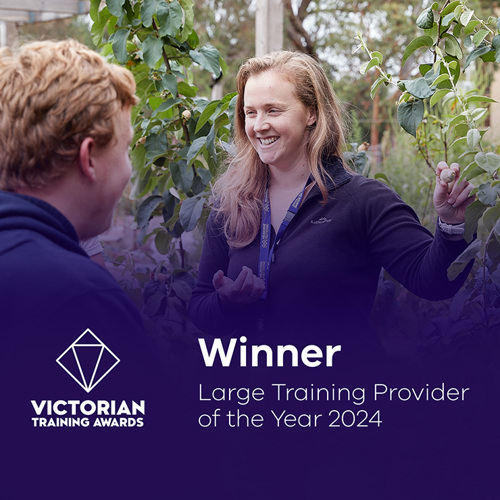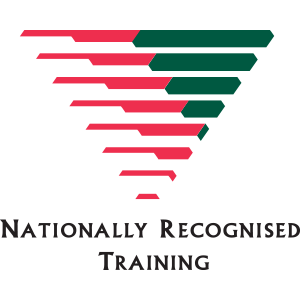Advanced Diploma of Music Sound Production
Overview
1 year full time / 2 years part time
1 year
February, July
February, July
Get started in the world of sound with an Advanced Diploma of Music CUA60520 (Sound Production)
If you’ve dreamed of being a music producer working in state of the art studios with analogue and digital recording equipment, then Melbourne Polytechnic’s Advanced Diploma of Music CUA60520 (Sound Production) could be just the jam for you. Melbourne is the music capital of Australia and one of the greatest music cities in the world, with more live music venues per person than New York, Paris, Berlin or Tokyo. The music industry generates $25 million per year in Melbourne alone and there’s no better place to learn the ins and outs of the music production industry.
Purpose Built Facilities and Industry Connected Trainers
The Advanced Diploma of Music CUA60520 (Sound Production) is designed as a hands-on course, and students will learn at an industry standard. You’ll train in Melbourne Polytechnic’s purpose-built, fully-equipped sound studios. Work with analogue studio equipment and digital audio workstations (DAWs) like Ableton and Pro Tools. Our Advanced Diploma of Music CUA60520 (Sound Production) also focuses on collaboration and entrepreneurship, with creative integrated projects fostering connections between students. All of your teachers are active musicians with years of musical experience to help you amplify your musical skill set. Melbourne Polytechnic’s musical alumni include the founding members of ARIA-award winning band, Augie March, and rock and roll DJ icon Stan Rofe.
An Advanced Diploma of Music CUA60520 (Sound Production) leads to a Variety of Outcomes
At the conclusion of the course, you’ll have the skills to produce electronic music or develop sound design skills for theatre, film and television. You might work as a music producer, or work in post-production for radio, television, film and digital media. Other career opportunities include positions as a front of house operator, a monitor operator, a sound editor, or a studio engineer.
Upcoming info sessions
Have a chat with our highly experienced course advisors who can help you navigate your many career options.
Career Pathways
Where will the Advanced Diploma of Music CUA60520 (Sound Production) take me?
- Sound Designer
- Music Producer
- Sound Editor
- Music Editor
- Producer
Study Pathways
As an Advanced Diploma of Music CUA60520 (Sound Production) graduate, you may be eligible to apply for other vocational training and university courses in recording, sound design and post-production for film and television, theatre, audio/visual technology, radio production and new media.

Ash Raven
Before I was out of school I got jobs in event management and sound production companies, theatres, mixing bands in pubs, and I’m producing bands. I really feel taken care of, I know if I raise a problem with a teacher or I need help or support they go beyond to help students.
Course Details
Delivery methods
- Performance venues
- Studio
- Electronic music lab
- Skills development activities in simulated work environments
How you will study
Each course has a dedicated learning method that is designed to let you thrive in your studies.
On-campus
Interactive learning in a face-to-face environment. Classes will be held at a Melbourne Polytechnic campus or partner institute. Visit the How You'll Study page for more information.
Class Schedule
32 weeks across 2 semesters.
Assessment Methods
Assessment includes: observation of students' performance, oral questioning, written activities, and projects/portfolios of student work.
Units of Study
The hours displayed are nominal, actual classroom hours delivered may differ. Please contact us for the latest student contact hours information.
| Code | Subject | Elective | Hours |
| CUACMP511 | Manage copyright arrangements | Core | 20 |
| CUAMLT512 | Assess significance of music and apply knowledge to professional practice | Core | 40 |
| CUAPPM614 | Plan and manage post-production activities | Elective | 35 |
| CUAPPR515 | Establish and maintain safe creative practice | Core | 40 |
| CUAPPR613 | Engage in the business of creative practice | Core | 80 |
| CUASOU413 | Manage audio system control networks | Elective | 120 |
| CUASOU421 | Mix audio for live productions | Elective | 140 |
| CUASOU505 | Implement sound designs | Elective | 50 |
| CUASOU506 | Create a final sound balance | Elective | 85 |
| CUASOU512 | Manage operation of stage monitor systems | Elective | 70 |
| CUASOU513 | Develop sound designs | Elective | 50 |
| CUASOU517 | Compile music for soundtracks | Elective | 35 |
| CUASOU611 | Manage production of sound designs | Elective | 50 |
| CUASOU612 | Manage production of sound recordings | Elective | 50 |
| SITEEVT010 | Manage on-site event operations | Elective | 60 |

Sound Production Student Ash Ravens
From corporate life to centre-stage with student Ash Ravens
Meet Ash
Sound Production Student Luana Moreno
Luana hits our shores for a career in sound
Meet Luana
Sound Production Student Diego Depane
From the Amazon to Australia, an audio adventure with student Diego Depane
Meet DiegoFees & Costs
| Government subsidised fee | Non-subsidised fee | |
|---|---|---|
| Tuition fee | $10900 | $17200 |
| Maximum annual amenities | $250 | $250 |
| Total payable | $11150 | $17450 |
| Per year | $19600 |
| Per semester | $9800 |
The student tuition fees as published are subject to change given individual circumstances at enrolment.
Displayed course fees are indicative only. There are many variables that impact the total amount of your full course costs including qualification for government subsidies, concessions or recognition of prior learning. Tuition fees do not include the cost of student amenities or material costs.
This training is delivered with Victorian and Commonwealth Government funding. Contact us to find out if you’re eligible for a Government subsidy.
Melbourne Polytechnic offers a range of payment options to help you pay your tuition fees, so you can get on with your studies.
Fees displayed are effective for new applications received on or after 1st of November. Tuition fees do not include textbooks, course materials or overseas student health insurance and visa fees.
After initial deposit, international students are able to pay tuition fees in installments, four times per year.
For more detailed information please read the International Student Fees.
Materials
Lists of required materials, books and timetables will be provided at course induction or class enrolment by the teaching department.Fees explained
The fees for those ineligible for a government-funded enrolment.
The cost of tuition for those eligible for government funding.
Additional expenses
The Student Services and Amenities Fee is charged at forty cents (40 cents) per student contact hour and is capped over a twelve (12) month period, effective from the enrolment date, to:
- $250 for full fee-paying students; and
- $175 for concession-paying students studying Certificate I, II, III, or IV.
Amenities fees are used to improve non-academic services including libraries, counselling services, student support, and recreational activities.
Learning materials are supplied. Software and equipment required is available on campus. It is helpful to own a computer with sound production software to be able to work from home. There are no materials fees.
Book an interview
Requirements
- applicants with industry experience and/or previous qualifications at the relevant level may gain entry directly into Advanced Diploma of Music (Sound Production). Interviews assess that the applicants’ level of music engineering and production skills are suitable for this course.
- apply through VTAC or direct to Melbourne Polytechnic
- attend an interview and complete a short questionnaire. Interviews are conducted either remotely via Zoom or phone, or in-person at the Fairfield Campus, and are open to all applicants (local, interstate, overseas). For further information email performingarts@melbournepolytechnic.edu.au.
- attend an Information Session. Note: this is not a compulsory requirement
- Academic: Australian Year 12 equivalency
- English: Academic IELTS 6.0 overall, Pearson PTE Academic 50 overall, or Melbourne Polytechnic recognised equivalency.
- Other: Attend an audition/interview. Auditions are conducted either remotely via Zoom, or in-person at the Fairfield Campus, and are open to all applicants (local, interstate, overseas). For further information email performingarts@melbournepolytechnic.edu.au.
Next Steps
The first step to enrolling is completing the application short form from the Apply Now page.
After you complete that form we will send you an email with a link to an application form webpage. If you don’t receive the email, check your spam and junk folders.
Complete the application form on the application form webpage.
You will be required to complete an online literacy and numeracy assessment.
We’ll ask you to attend an interview to ensure that this is the right course for you.
Once you are ready to enrol, you will be invited to attend an enrolment appointment over the phone or on campus.
For Diplomas and Advanced Diplomas, you may be eligible for a VET Student Loan. Read more about them here.
If you need assistance with your application and the next steps, you can contact one of our Education and Course Advisors on 1300 635 276 or follow a step-by-step guide to enrolling for vocational education local students.
When we receive your application, the International Office will be in contact with you shortly to discuss your application and provide you additional instructions.
If you'd like to speak to one of our International Office staff directly, call 1300 635 276

We're Victoria's Large Training Provider of the Year
Study with Melbourne Polytechnic, proud winner of Victoria’s 2024 Large Training Provider of the Year! Recognised for our innovative programs, industry partnerships and commitment to student success, we’re here to help you build the skills for a thriving future.
Recognising Organisations

Nationally Recognised Training This course is government accredited and has national recognition.
Local student means; you are an Australian citizen or permanent resident, a New Zealand citizen or a permanent humanitarian visa holder.